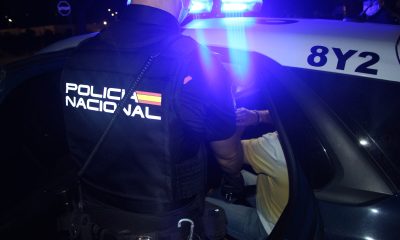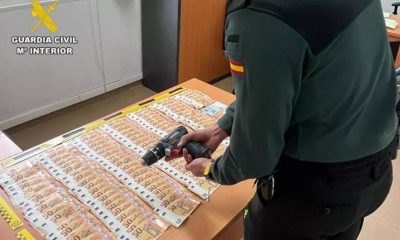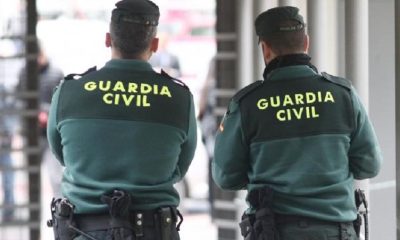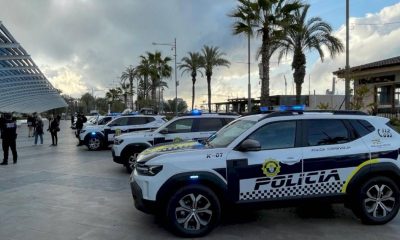Costa Blanca
Former commander of ETA, has denied any involvement in the 1995 attack on airport
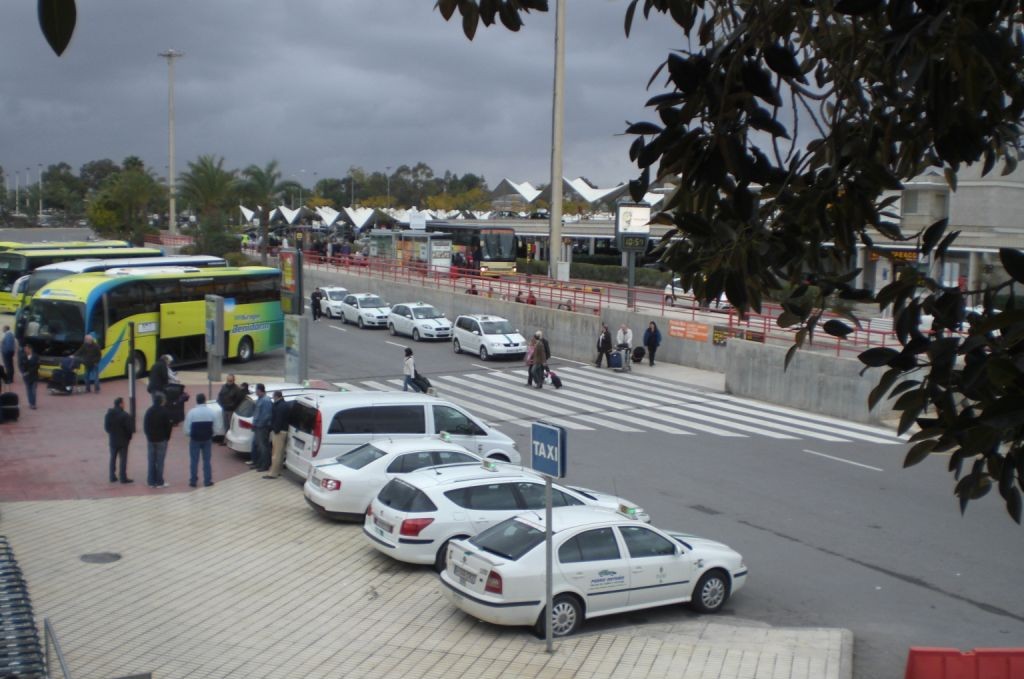
Iratxe Sorzabal, a former ETA leader, has denied her involvement in the attacks and has claimed that her confession to that attack and 21 others, which were recorded in a ‘kantada’ (a handwritten note sent by ETA members to the gang’s leadership after their arrest), was obtained under torture. She is currently facing six years in prison.
This is the statement she made in response to her attorney during the trial at the National Court, which is currently preparing for sentencing. The Public Prosecutor’s Office is requesting a six-year penitentiary sentence for her.
Sorzabal, who wept as she recalled her second arrest in 2001 and her time in police detention, insisted that she began collaborating with ETA in 1996. However, she denied that she was a member of any commando group, as her responsibilities with the group included securing the border with France.
During her interrogation, the former ETA member disclosed that the Civil Guard subjected her to a variety of forms of torture after her arrest. She discussed electrodes that caused burns on her back, bags being placed in her mouth, and blows. This experience compelled her to disclose the information she was compelled to admit as her own in the “kantada” and during her incommunicado detention at police stations.
“I signed because I had not slept for two days,” he stated. He also took 28 photographs and offered to claim the attack on Carrero Blanco as his own, which elicited amusement from the officers.
The prosecutor in the case, Carlos García Berro, maintained his request for Sorzabal’s sentence following his statement. He explained that in this case, there are only two essential pieces of evidence: the statement made by the ETA member herself and her ‘kantada’. He acknowledged the latter as valid, suggesting that the defence cannot assert that this handwritten note should be acknowledged in certain trials but not in others: “It is Schrödinger’s ‘kantada’.”
He emphasised that the document should be analysed independently of the police statement and the circumstances of the arrest in this regard. He described this type of note as genuine and spontaneous, as it was a “compulsory accountability by ETA.” Consequently, he disassociated this note from the police statement.
He also emphasised specific details about her, including the fact that she was recruited by her companion, Iñaki Tellechea, who was also a member of the gang, to join ETA in 1994.
Nevertheless, Sorzabal’s defence, which initiated its report by advocating for a complete acquittal, underscored that this is a case in which the detainee was subjected to torture, that a handwritten note containing an account of her statements at the police station is included as evidence, and that if this rant is attributed to Sorzabal, it cannot be used to secure her conviction due to the violation of her constitutional rights.
Consequently, he expressed his scepticism that Sorzabal would have composed that note if she had not been tortured and suggested that it is challenging to legalise evidence of this nature when the detainee’s fundamental rights have been violated. He added a final issue after elucidating the procedural loopholes that complicate the validity of the evidence: if it were a confession, it would also be invalid because it was made without the presence of a counsel and without the knowledge of her rights.
“The nullity of the evidence is the only viable alternative.” He also stated that they are attempting to convict using null evidence and a handwritten note that has been inadequately translated and misinterpreted.
Sorzabal is accused of placing an incendiary device at the Altet Airport in Elche (Alicante) on July 29th, 1995, according to the Public Prosecutor’s indictment. At 12:45 p.m. on that day, a cleaning lady was “emptying the trash can located in the tunnel connecting the parking lot with the passenger arrivals area” when she “observed a bag containing a package containing cables and a battery.”
“After being notified, the State Security Forces and Corps proceeded to cordon off the area, and the Tedax deactivated the device, which turned out to be composed of a digital clock, a 9-volt battery, 500 grammes of the explosive substance Ameritol, an electric detonator, and some cables,” according to the prosecutor’s office information.
The information provided indicates that “no personal or property damage occurred, even though the explosive device was placed with the aim of causing maximum damage to people and public and private property.”
This marks the second occasion in which Sorzabal has been dragged before the court this year. The former ETA leader was tried for an October 1995 attack at the Irún border crossing (Guipúzcoa) that damaged the Spanish customs office at the end of last February. She is currently facing a 12-year prison sentence for this offence.
Sorzabal, who is currently awaiting her sentencing, denied “everything” during her statement as the accused. The statement also examined the accused’s “kantada,” which includes assaults that, at the time of their recording, had no clear perpetrator, such as the two aforementioned.
The manuscript that the former gang leader recounted “is everything” she “was made to memorise, with every detail” at the police station maintained.
The significance of this “kantada” is that it references attacks that have not been prosecuted or ascribed, such as the one that occurred against a Mapfre branch in 1993. This is precisely the reason why the tribunal did not concentrate on the Irún attack, but rather on the validation or dismantling of the document’s content.
Discover more from Costa Blanca Daily
Subscribe to get the latest posts sent to your email.
Costa Blanca
Benidorm, police catch man with 600 marijuana plants in his car
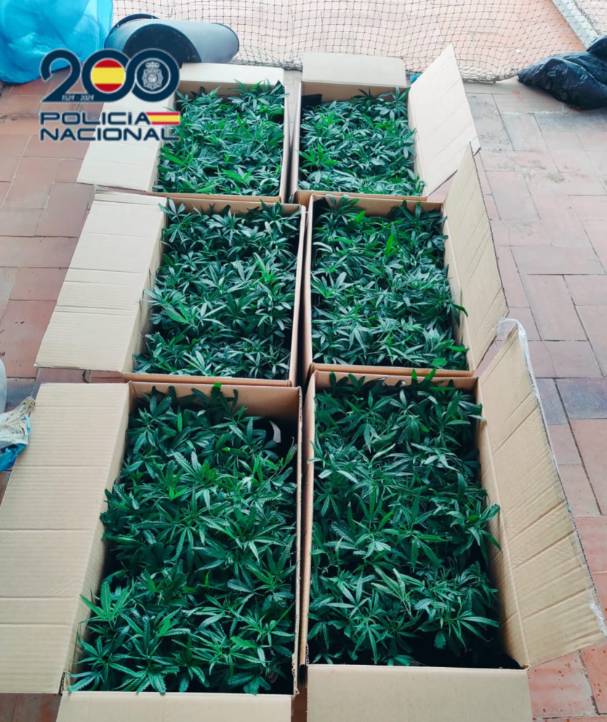
A 49-year-old man was caught in Benidorm by the National Police for transporting marijuana plants and other supplies needed for their growth in his own car. A crime against public health has been charged against the man who was caught.
The man was arrested as the last step in an investigation that began when the National Police learnt about his activities in the province of Alicante, which included moving drugs (mostly marijuana) and building infrastructure for future hydroponic crops.
In the beginning, police focused on finding the man and his car. After making sure of both of these things, investigators did a number of surveillance and monitoring operations to confirm how he worked. It was proven that the suspect was carrying drugs and the nutrients needed to grow marijuana hydroponically in people’s houses in the province of Alicante as they drove.
Last but not least, the arrest happened after one of the operations to spy on and track one of the trucks.
When he was arrested, his car was checked, and police found 600 marijuana cuttings, €1,500, two mobile phones, and thirteen five-litre drums of fertiliser and plant growth nutrients.
The arrested man was given to the Benidorm Investigative Court after the police looked into the case.
Discover more from Costa Blanca Daily
Subscribe to get the latest posts sent to your email.
Costa Blanca
21 expensive cars that were stolen in the U.S. were found Valencia port
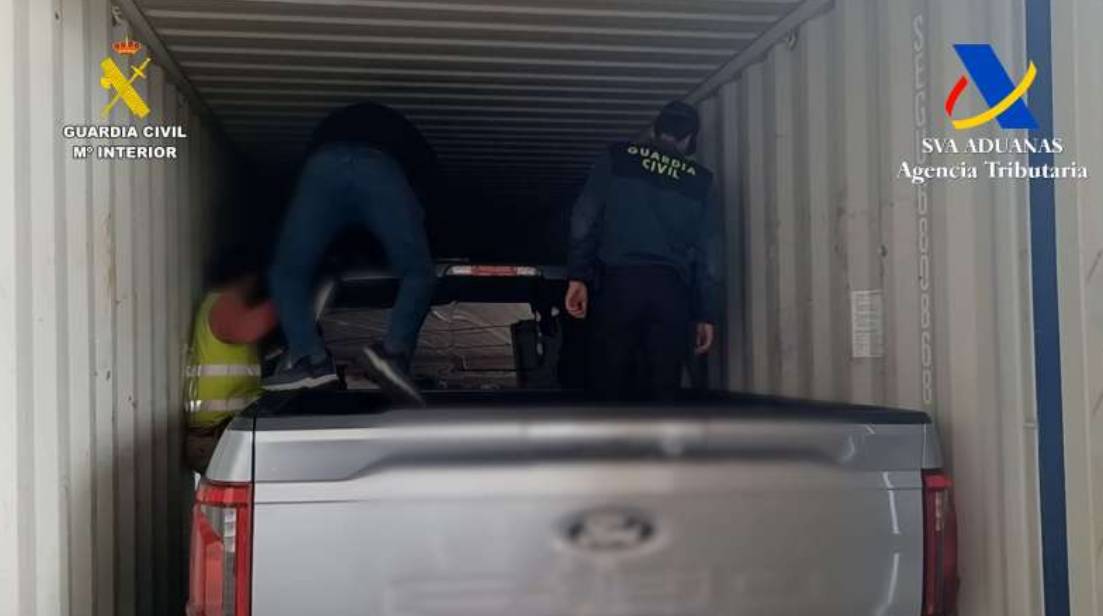
Together with the US Container Security Initiative, the Guardia Civil and the Tax Agency found 21 high-end cars that were stolen in the U.S. and were on their way to Africa in the port of Valencia. The cars, which were worth a total of €1.1 million, were reported stolen and were being moved in containers.
The cars were stolen in the U.S. and were on their way to different places in Africa, stopping in Valencia’s port. Risk analysis units made up of Guardia Civil and Tax Agency officers were able to find several packages that might not have had the goods that were claimed to have been inside.
With the help of the information gathered, it was confirmed that stolen cars that had been in Valencia on their way to the United States had actually arrived. The groups that ship stolen cars either traded legally declared cars for stolen ones or directly declared the stolen cars as other goods, like furniture or mattresses.
In the past few weeks, 21 vehicles have been found and will be sent back to their home countries to be given to their original owners.
Discover more from Costa Blanca Daily
Subscribe to get the latest posts sent to your email.
Costa Blanca
14 immigrants were saved on a boat 45 miles off the coast of Alicante
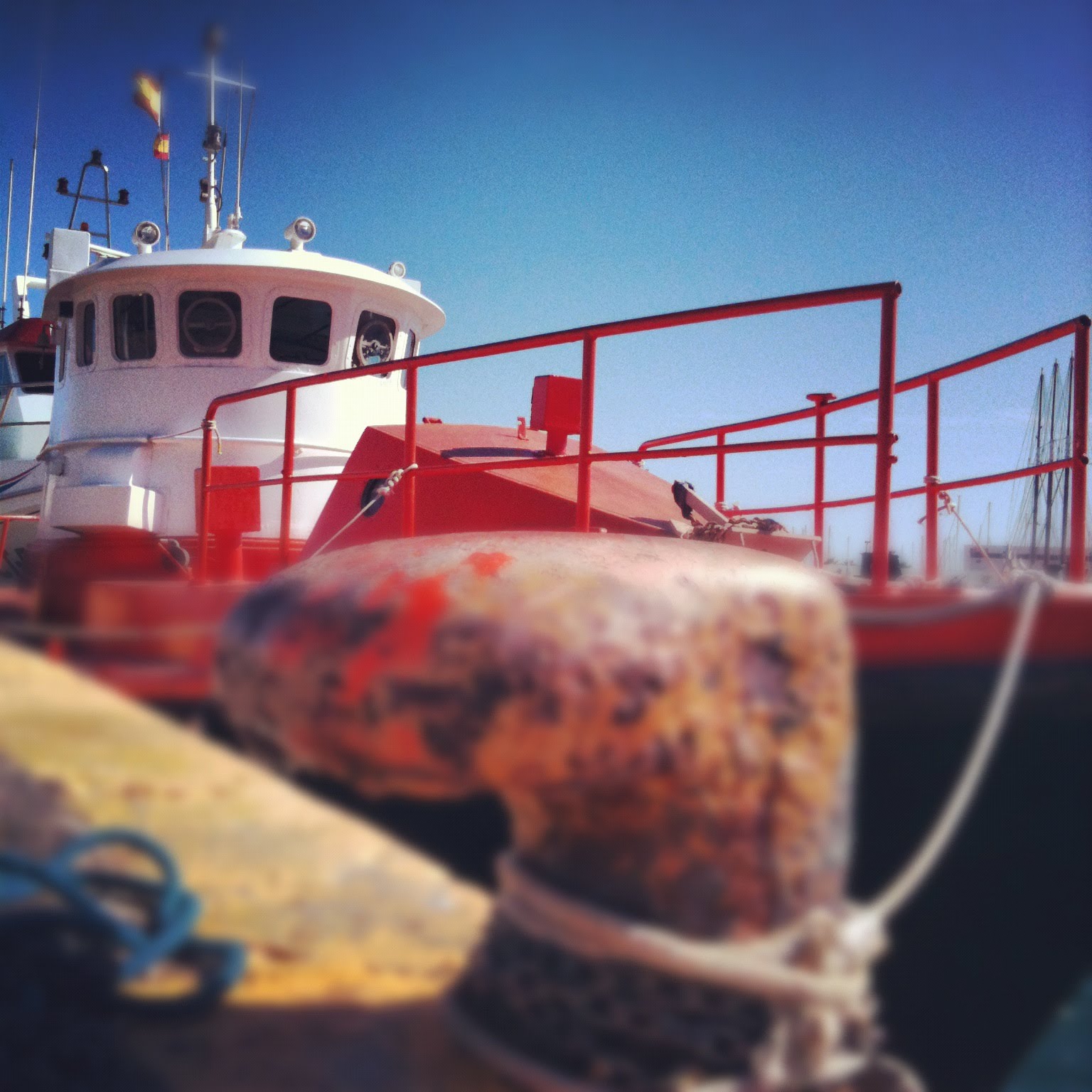
On Wednesday, 2nd April, the Maritime Rescue ship Salvamar Leo saved 14 immigrants who were travelling in a boat about 45 miles from Alicante.
In the middle of the afternoon on Wednesday, Maritime Rescue sent out its Helimer 223 helicopter and the Salvamar Leo, which is based in Alicante, to save the people on a small boat.
Their journey began on the Salvamar Leo, which took them to the Temporary Assistance Centre for Foreigners in the port of Alicante. There, the Red Cross took care of them.
The Red Cross says that all of the refugees they saved were men, and two of them were younger than 15 years old. They were all healthy after being treated.
The National Police took over the refugees after getting help from the Red Cross. They are now trying to find the boat’s captain so they can arrest him, as is normal in these situations.
Discover more from Costa Blanca Daily
Subscribe to get the latest posts sent to your email.
-

 Costa Blanca1 day ago
Costa Blanca1 day agoBefore Easter, the new road through La Hoya should open
-
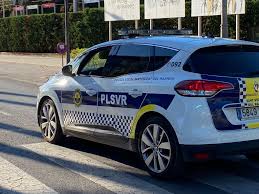
 Costa Blanca2 weeks ago
Costa Blanca2 weeks agoPolice prevent three squatters from taking over an Alicante home
-

 Costa Blanca2 weeks ago
Costa Blanca2 weeks agoElche mother sentenced to 19 years for the murder of her son and the abuse of her twins
-

 Costa Blanca2 weeks ago
Costa Blanca2 weeks agoElche man arrested for sending intimate images of his partner
-
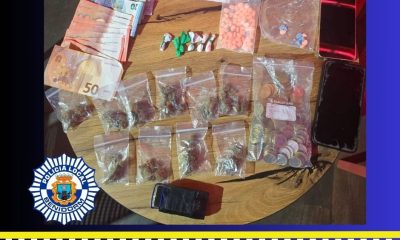
 Costa Blanca2 weeks ago
Costa Blanca2 weeks agoTwo men arrested for drug trafficking in Benidorm
-

 Costa Blanca2 weeks ago
Costa Blanca2 weeks agoIn the next five years, air taxis will become a reality in Europe
-

 Costa Blanca2 weeks ago
Costa Blanca2 weeks agoA second runway at Alicante-Elche Airport has been rejected by the government
-
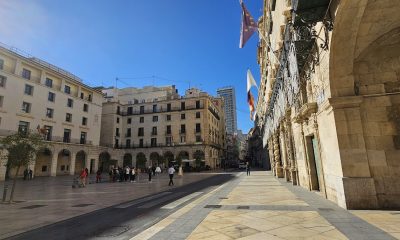
 Costa Blanca2 weeks ago
Costa Blanca2 weeks agoThree years in prison for causing a traffic accident in Pinoso that killed two





